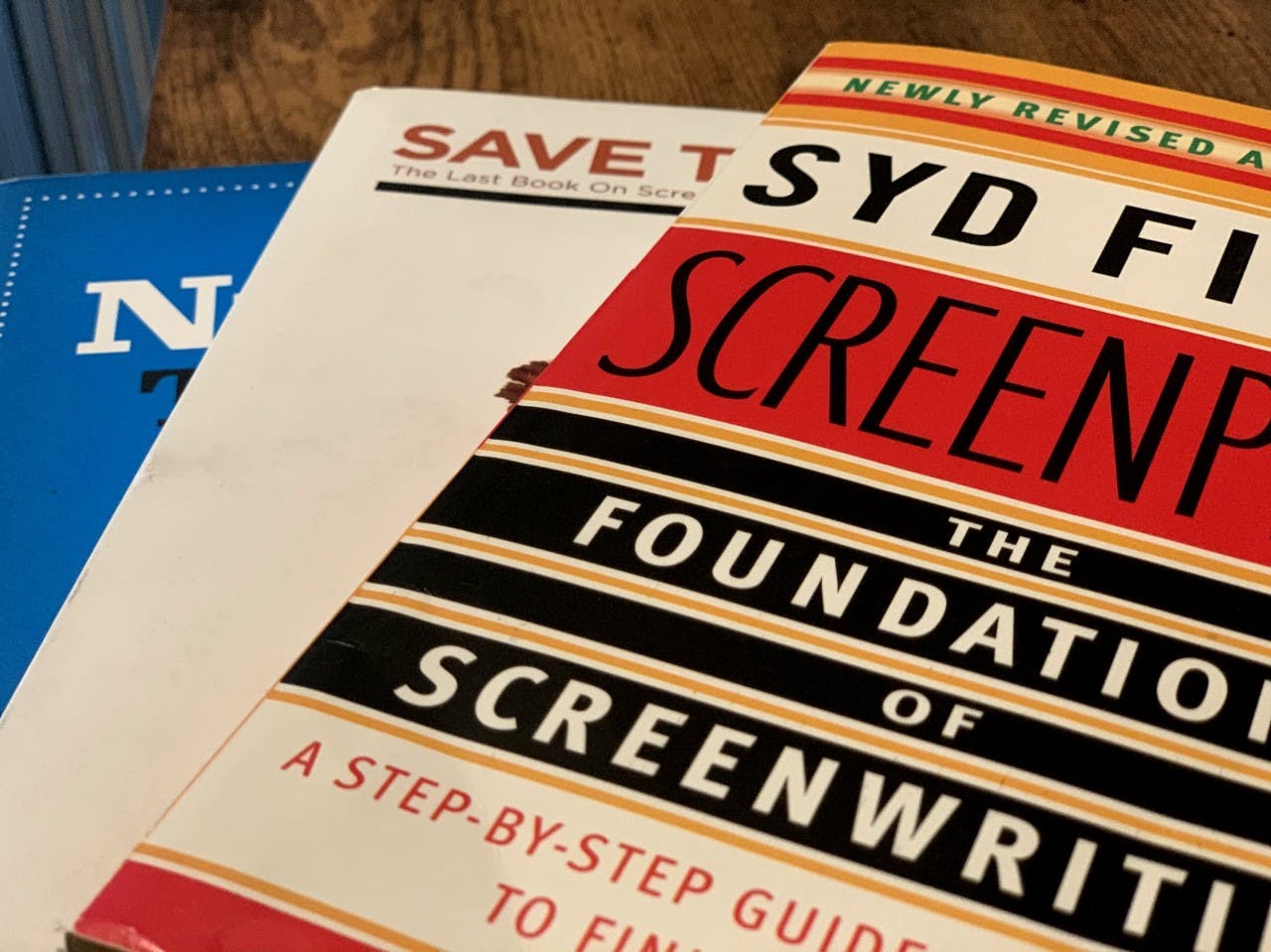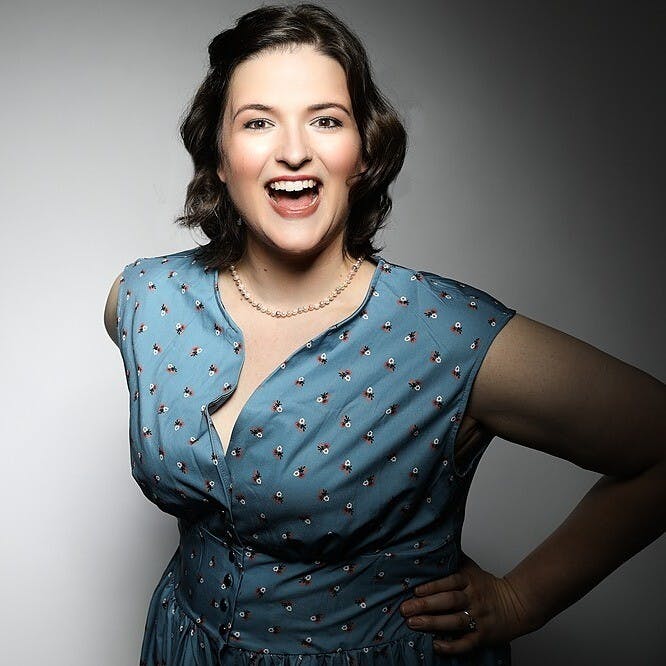Is Everything You Learned About Screenwriting Wrong?

Is Everything You Learned About Screenwriting Wrong?

It was lunchtime on a Wednesday afternoon. Finished eating at my desk, I sat in my car, in a nearby parking lot, about to crack open a book that would help change the direction of my life. A book so powerful that it would open my eyes, helping make things clear that I once couldn’t see. A book on screenwriting.
Reading Screenplay: The Foundations of Screenwriting by Syd Field was the first time I had been introduced to three act structure and specifically the hero’s journey. I had made two short films prior to reading the book and I was about to embark on my first feature length film. It was at this time I decided I needed to educate myself and figure out what the hell I was doing.
I was able to get by on experience alone, in my first two films. Having watched plenty of movies, I had a general idea of structure. I knew each film had a beginning, a middle and an end, but I really didn’t know there was a specific structure behind it all. I didn’t know there was a reason.
Reading Syd’s book while simultaneously writing my first feature Pink Heat would help shape my storytelling and films for years to come. I now knew about three act structure, character building, inciting incidents, key incidents and plot points to name a few. I was ready to tackle this feature head on and I did so with confidence.
Completing the film, left me more thirsty than I’d ever been. The thirst wasn’t for more creativity, it was for education. I wanted to move forward, do what I just did, but do it better. I wanted to become a great filmmaker and thus, I wanted to educate myself. I found that self education was a key component to my own personal growth. I found power in knowledge and honestly, for the first time in my life.
Ready to embark on another great script, it was time to educate further. So there I sat at lunchtime once more. The same car, the same parking lot. Only this time, it was a different book.

SAVE THE CAT!
Interesting read, this book was. It’s literally one I recommend to everyone looking to start out. Touching on a lot of the items Syd discusses in his book, the one big thing Blake Snyder brings to the table is setting up a character that the audience will want to win. The character doesn’t have to be likable, but you should want the audience to cheer for them. His solution...have the character save the cat...figuratively speaking.
The idea here is to set up a situation, early on in the script, that shows a very human side of your main character. Show the character helping an old person across the street and your audience will see their gentle side. The audience can relate to this sensibility and will naturally cheer for the character throughout. They see the good in the character. I added this technique to my imaginary toolbox.
The human brain is like a toolbox and education was my way of filling it with the tools I may need. With each book I read, I was adding tools, expanding my abilities and making my knowledge of the screenwriting art more diverse.
Although I did learn something new, one thing remained consistent in this book. You still write with three act structure, you still follow the hero's journey, you still have inciting incidents, the highs, the lows and everything in between. Interesting...there must be something to this structure thing since both authors put so much emphasis on it.
Finishing my next screenplay, the education was beginning to pay off. Invited to the 16th annual Beverly Hills Film Festival, I felt validated in my efforts to become great. I was ready to take things to the next level. I was ready to dive head first into a new technique, one that could potentially change the game forever.

THE NUTSHELL TECHNIQUE
Wow, this book hit home. Jill Chamberlain approaches screenwriting the same way I do. As I stated, books provide me with tools, but that doesn’t mean I don’t have my own techniques to go along with those tools.
One thing I loved about Jill’s book is the way she outlines a script. It was fresh, it was new, it doesn’t use notecards. She makes it simple to take an idea and break it down into a format easily digestible by new writers. She provides a step by step process of setting up your story and getting it ready for the actual writing of a script.
Adding another tool to the box, I was becoming more well rounded. But again, I couldn’t help but notice that the structure of a script still remains the same in her book. There’s still three act structure, there’s still plot points and there’s still all the highs and lows.
Essentially all of these books are saying the same thing, only a little differently. It’s the same ideas and techniques just presented in a little different form. It’s a heavy focus on structure and very little content on everything in between. I wonder why this is. Is structure the only thing that matters? If you set up the perfect three acts, are you truly setting yourself up to win? This is where the journey really begins.

SELF DISCOVERY
At some point in life, you have to forget about the things you’ve been taught and begin to think for yourself. The one thing I didn’t like about the training I had received up to this point is the amount of emphasis that is put on “proper” storytelling structure. What makes it so proper? Why MUST everyone write this way? Isn’t this crippling creativity? Are we just in the business of creating little freaking robots for Hollywood? A few of the many questions I would go on to ask myself, but this next one stuck out to me most. What about character?
I’m not saying structure is bad or wrong, but at the end of the day who really gives a crap about structure. Movie goers don’t leave a film thinking, damn that film was structured to perfection. Nobody left Titanic thinking, wow the way James Cameron navigated that love triangle on the sinking ship was simply spectacular. They left saying, I can’t believe that Rose wouldn’t make room for Jack.
So if audiences love characters and that’s what they remember, why is there a lack of information out there for how to set up great, compelling characters? It’s like we’re skipping over the most important part. This is when I began to think a little deeper on the subject and really dive into what makes characters memorable.
Being the romantic I am, I decided to keep my focus on the film Titanic. Why did this film work so well? What made me love these characters? Why doesn’t anybody care about this ship that sinks?
Looking at Rose and Jack from a high level, one thing is very obvious, these characters are very opposite. No, I’m not talking about he’s a man and she’s a woman. I’m talking about who they are as people. She’s rich, he’s poor. She’s submissive, he’s aggressive. She’s proper, he’s not. She doesn’t take chances, he does. Wow...they are literally the exact opposite in every single way. Cue the lightbulb.

OPPOSITES ARE THE KEY
Cracking the character code for Titanic was a breakthrough for me. When you think about it, it’s really a simple technique and should’ve been obvious to me from the start, but it wasn’t. Now that I knew the secret ingredient in the sauce, I needed to prove this fact remained true in other films as well.
Indiana Jones - A professor who goes on adventures, surrounded by characters who don’t belong.
Han Solo - A run and gun smuggler surrounded by characters who are really more superior in every single way. He has NO powers and the supporting cast are Jedi, droids and a large teddy bear of sorts.
Joker (Heath Ledger) - A schizophrenic psychopath with literally no moral compass. Will do ANYTHING it takes, doesn’t use reason. Batman is the exact opposite.
Marty McFly - A boy from the future goes back in time and is surrounded by characters of another time. Marty is brave, his father is not.
Forrest Gump - A slow, unlikely man finds himself in some of the world's most amazing situations, accomplishing some great feats in life. The characters around him are mentally more superior in every way.
Just listing a few, I felt like this was enough to prove my point. Great characters are developed just by playing a simple game of opposites. So if that’s the case, why the hell so much emphasis on structure? It has to fuel the love of characters in some way, right? The answer to this question changed my perspective entirely.
Structure is important...if it helps fuel the characters. It’s all there FOR the character, not the opposite. We’re not taking a CHARACTER on an adventure, the character is taking US on one and if fact, it doesn’t even matter what that adventure is. Think about it. Take the same story of Titanic and place it on a spaceship. After a few minor modifications, the story is still essentially the same. You’re going to get the same result and audiences are still going to love it.
The adventure doesn’t really matter. Hell, if Harlod and Kumar can go to White Castle, you can essentially write about whatever you want. Just put some characters in there that are opposite, have the adventure play into those opposites and poof! Movie magic.

FINAL THOUGHTS
Thinking back, maybe this is what instructors and those books had been trying to tell me all along. Maybe I’ve been dense this entire time and just now the lightbulb came on. I don’t know and really it doesn’t matter. Something finally clicked for me. Something finally made sense. I felt like I made a major breakthrough. I felt like I finally found my voice.
I don’t like that there is so much emphasis on structure. I think it robs people of their creativity. Nothing great ever came from doing the same thing everyone else has been doing, so I urge writers to walk their own path. Tell their own stories. Find their own voice and run with it. Put more focus on character and let the adventure be whatever it is. As long as you’re playing into the character, you’re going to win.
Thinking I might be a little crazy, I finally felt a bit validated in an interview I saw on the Rich Roll podcast with the amazing writer/producer Kurt Sutter (Sons of Anarchy, Southpaw, Mayans M.C).
“Do you think somebody said, write about THAT? No. That became the thing everyone wanted to recreate because it was, what it was. Rather than starting with the end result, you start from within and then be that thing that everybody else wants to recreate. It’s hard for writers to wrap their brain around that sometimes. That’s why I’d much rather take a writer who’s green in terms of process and technique but, who clearly has an interesting point of view. That’s the gold. Any hack can write a three act format.”
About the Author

Sean LaFollette
Director, Filmmaker, Producer, Screenwriter, Script Supervisor
In my 13 years of film, I have worked to write, direct and produce 3 short films and 2 features. Between filming I write and study screenwriting while also working as a script supervisor on other film projects. My experience has positioned me to not only be an effective script supervisor but to a...





